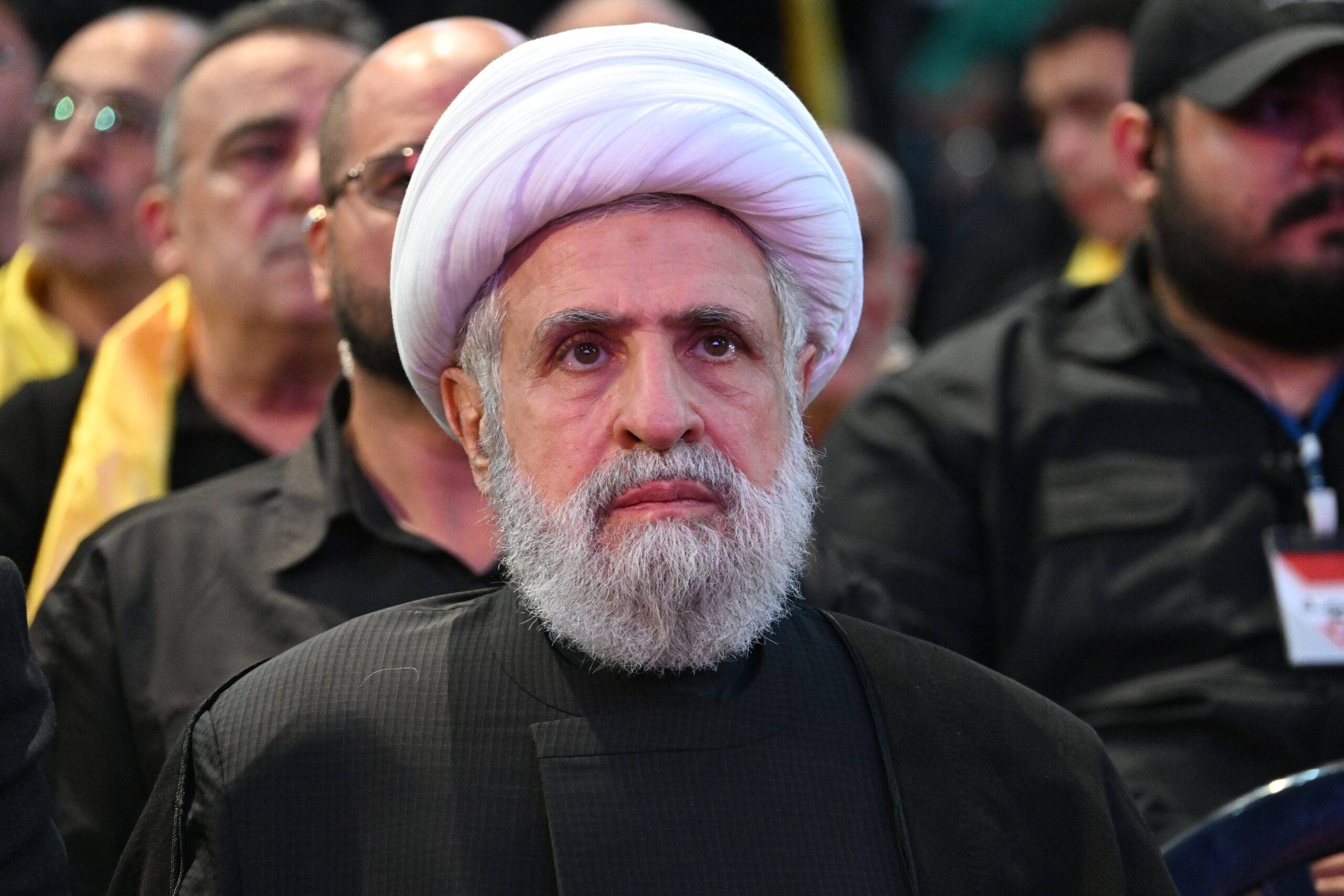
Pakistan, July 7 — Hezbollah’s new leader, Naim Qassem, firmly rejected Israeli calls to disarm, saying the group will not surrender or hand over its weapons. Speaking during a major Ashura event in Beirut, Qassem declared that threats from Israel would not force Hezbollah into submission. His remarks come ahead of a visit by US envoy Thomas Barrack, who is expected to press Lebanese leaders to disarm Hezbollah by the end of the year.
Qassem emphasized that Israel must first stop its “aggression” and fully honor the November ceasefire agreement before any talk of disarmament. According to the deal, Hezbollah was to move its fighters north of the Litani River, while Israel was supposed to withdraw from five key areas. However, Israel has continued airstrikes, claiming Hezbollah still operates near the border. Lebanese officials say they are actively dismantling Hezbollah’s southern military bases.
Supporters gathered in Beirut’s southern suburbs for the Ashura procession, waving Hezbollah, Palestinian, and Iranian flags. Many also carried photos of former leader Hassan Nasrallah, who was killed in an Israeli airstrike last year. “Those who think Hezbollah will turn in its arms are ignorant,” said Hussein Jaber, a 28-year-old from southern Lebanon.
Meanwhile, Qassem rejected any possibility of normalizing ties with Israel, despite recent statements by Israeli officials expressing interest in such moves. Lebanon, still officially at war with Israel, has not commented, while Syria, also named in the normalization discussions, said it was “premature” to consider.
In southern Lebanese towns like Nabatiyeh, Ashura commemorations were held under tension, with fewer participants due to recent Israeli strikes. Residents said the attacks had damaged key areas, including markets, causing fear among the public. Across the region, Shiite communities marked the religious day with heightened security and lower turnout.
In Syria, hundreds gathered at the Sayyida Zeinab shrine in Damascus, but unlike past years, no international pilgrims attended. Officials said security had been tightened since the fall of Iran-backed Bashar al-Assad. “This year, there have been no pilgrims from other countries,” confirmed a local shrine official.









Leave a Reply